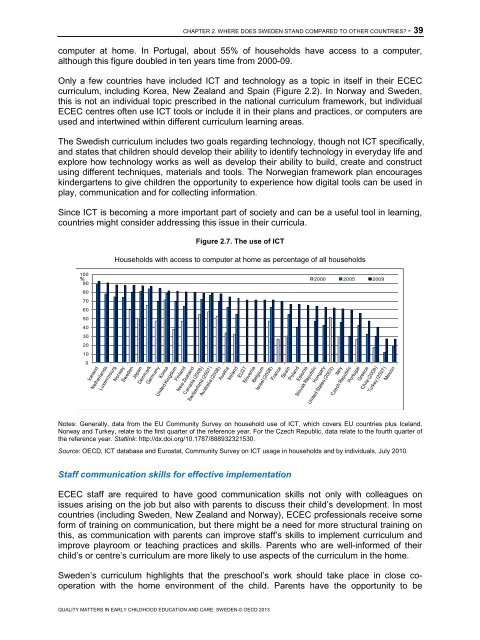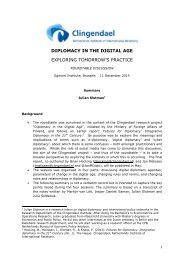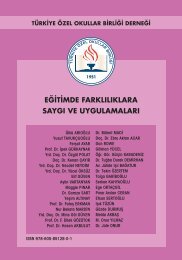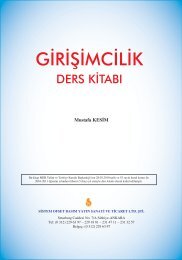SWEDEN%20policy%20profile%20-%20published%2005-02-2013
SWEDEN%20policy%20profile%20-%20published%2005-02-2013
SWEDEN%20policy%20profile%20-%20published%2005-02-2013
You also want an ePaper? Increase the reach of your titles
YUMPU automatically turns print PDFs into web optimized ePapers that Google loves.
QUALITY MATTERS IN EARLY CHILDHOOD EDUCATION AND CARE: SWEDEN © OECD <strong>2013</strong><br />
CHAPTER 2. WHERE DOES SWEDEN STAND COMPARED TO OTHER COUNTRIES? - 39<br />
computer at home. In Portugal, about 55% of households have access to a computer,<br />
although this figure doubled in ten years time from 2000-09.<br />
Only a few countries have included ICT and technology as a topic in itself in their ECEC<br />
curriculum, including Korea, New Zealand and Spain (Figure 2.2). In Norway and Sweden,<br />
this is not an individual topic prescribed in the national curriculum framework, but individual<br />
ECEC centres often use ICT tools or include it in their plans and practices, or computers are<br />
used and intertwined within different curriculum learning areas.<br />
The Swedish curriculum includes two goals regarding technology, though not ICT specifically,<br />
and states that children should develop their ability to identify technology in everyday life and<br />
explore how technology works as well as develop their ability to build, create and construct<br />
using different techniques, materials and tools. The Norwegian framework plan encourages<br />
kindergartens to give children the opportunity to experience how digital tools can be used in<br />
play, communication and for collecting information.<br />
Since ICT is becoming a more important part of society and can be a useful tool in learning,<br />
countries might consider addressing this issue in their curricula.<br />
100<br />
%<br />
90<br />
80<br />
70<br />
60<br />
50<br />
40<br />
30<br />
20<br />
10<br />
0<br />
Figure 2.7. The use of ICT<br />
Households with access to computer at home as percentage of all households<br />
2000 2005 2009<br />
Notes: Generally, data from the EU Community Survey on household use of ICT, which covers EU countries plus Iceland,<br />
Norway and Turkey, relate to the first quarter of the reference year. For the Czech Republic, data relate to the fourth quarter of<br />
the reference year. Statlink: http://dx.doi.org/10.1787/888932321530.<br />
Source: OECD, ICT database and Eurostat, Community Survey on ICT usage in households and by individuals, July 2010.<br />
Staff communication skills for effective implementation<br />
ECEC staff are required to have good communication skills not only with colleagues on<br />
issues arising on the job but also with parents to discuss their child’s development. In most<br />
countries (including Sweden, New Zealand and Norway), ECEC professionals receive some<br />
form of training on communication, but there might be a need for more structural training on<br />
this, as communication with parents can improve staff’s skills to implement curriculum and<br />
improve playroom or teaching practices and skills. Parents who are well-informed of their<br />
child’s or centre’s curriculum are more likely to use aspects of the curriculum in the home.<br />
Sweden’s curriculum highlights that the preschool’s work should take place in close cooperation<br />
with the home environment of the child. Parents have the opportunity to be








